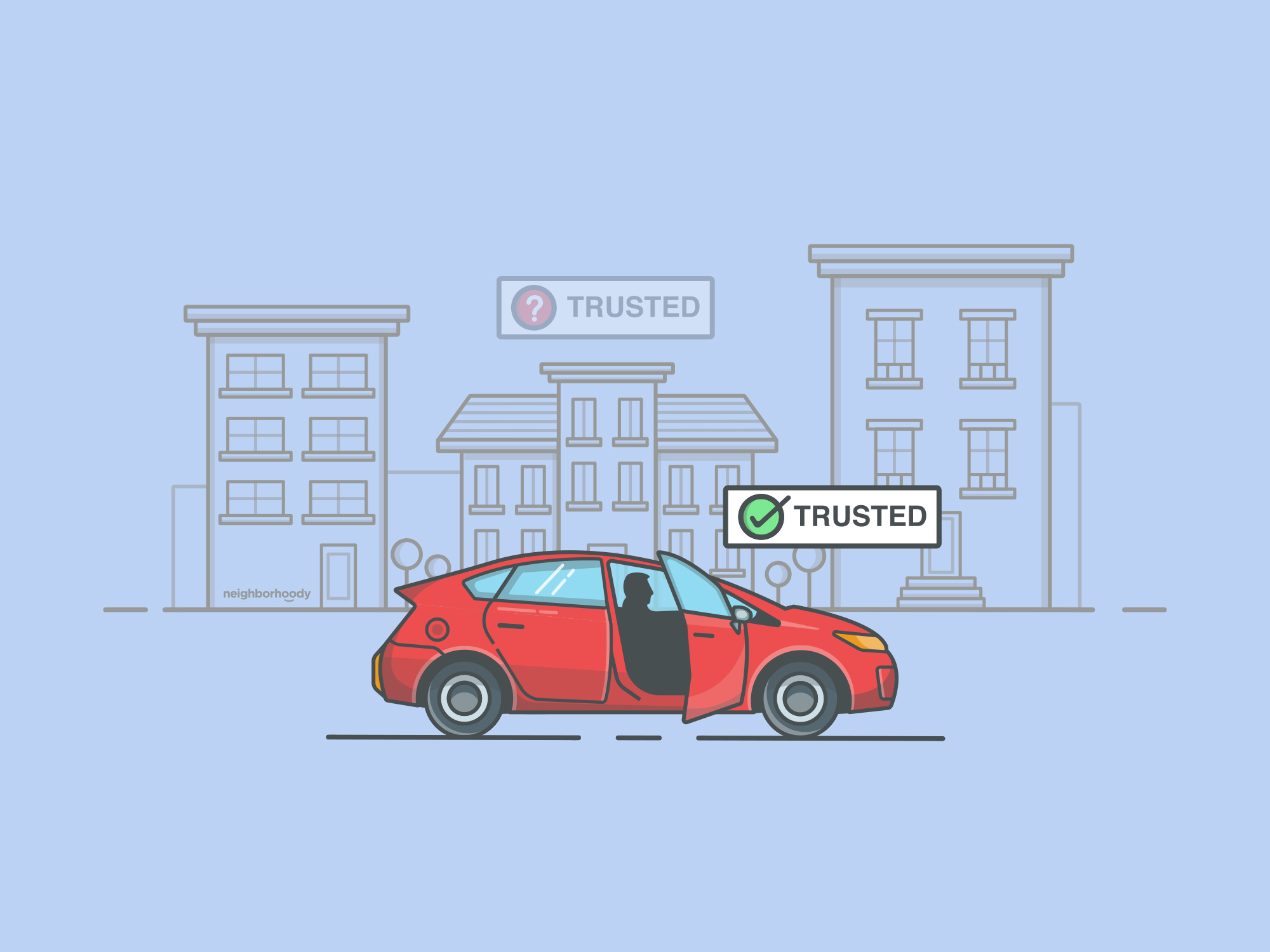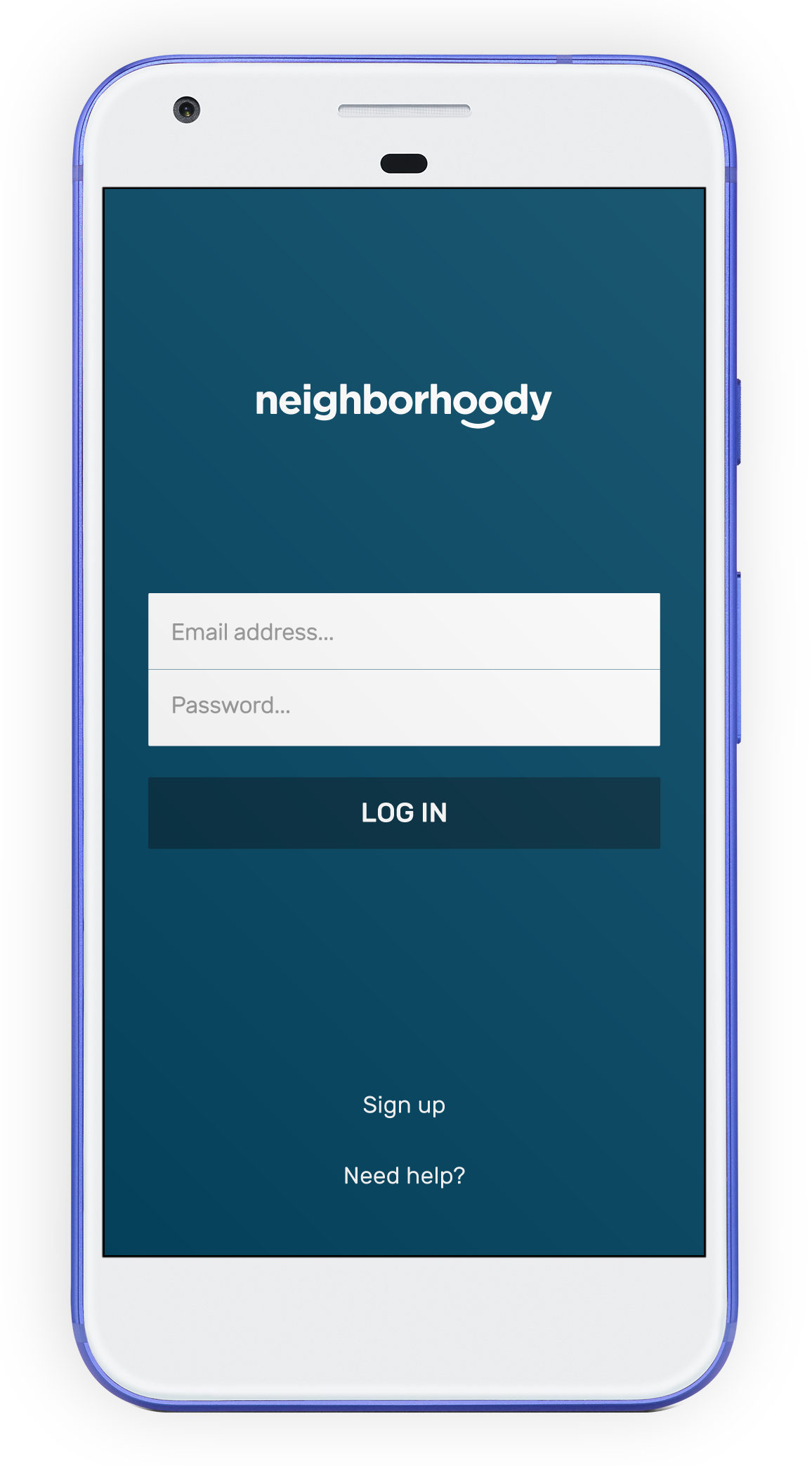Since when did a random car driven by a stranger requested through a mobile app on our phones become more trustworthy than the neighbor next door?
People trust the internet and apps, the endless stream of digital content, and the people they meet online more than they trust their neighbors next door. Why is that? What actually caused us to trust what’s on our phones and the internet more than our friends or neighbors in the community? First, let’s look at the definition of the word “trust” and how it has changed over the last couple of decades.

What is Trust?
Trust is fairly simple. The definition of trust is: “firm belief in the reliability, truth, ability, or strength of someone or something.” Pretty straightforward. Trust is all about belief. A belief that something will happen and the other party is reliable, honest, and has the ability to perform. So what was trust like before the internet?
What was Trust Before the Internet Like?
Trust before the internet was validating someone or something through your personal networks, whether that was your family, friends, or neighbors. Trust was also widely validated by organizations such as your church, school, bank, or recognized brands legitimizing the trust of something or someone.
Trust before the internet was established by authority. Authority by local, regional, and or global organizations and institutions. Trust was certified by people and organizations with authority and reach.
How the Internet has Changed Trust
The internet has dramatically shifted trust from our local networks and large institutions to strangers (i.e. product reviews on Amazon, Yelp business star ratings, etc…). Trust in the digital age is distributed.
The internet and inherent connectivity through digital devices have diffused the way trust was once legitimized and assigned. Trust is now highly distributed among strangers and online networks and no longer relies on a larger organization to validate the reliability of someone or something.
Transparency + Communication = Trust in the Digital Age
Trust in the digital age is all about transparency. There’s little room for secrets in the digital age. Access to consumer data is exponentially more readily available than ever before. But the flip side of that is also truer than ever. Organizations are prone to the same type of exposure.
Earned trust is all about communicating openly, being authentic, and transparent with your messaging. No communication = negative communication.
Why Transparency Matters for Community Associations
Homeowner and resident trust in your local community association or HOA is key to community harmony. If you want your community members to trust what’s going on, you need to be transparent about what’s happening. You also need to do things the right way. You need to be deliberate and think about where your community members are allocating their attention (Read this post about attention) consuming content and news. Be relevant and deliberate in the distribution of community news and leverage the platforms they’re already using.
If you want your community members to trust what’s going on, you need to be transparent and over-communicate with them. Homeowners and residents need to know things are getting done, money is not disappearing and being wasted, and their monetary contributions are providing a positive return individually.
Over-communicate with your residents and homeowners, give them access to documents, financials, and community information before they ask for it. Don’t make it hard for them to access it, what do you have to hide?
How to Increase Trust in your Local Community Association
Transparency is key to creating trust so community members not only believe but know you’re doing the right things. You need to be online because that’s where your residents and homeowners are and that’s where trust is earned. The way the world works is pretty clear and it’s not going back to the way it once was.
Getting started isn’t hard, but it does take a little bit of effort and some know-how (Leverage your millennials to help you get online!). Shifting from traditional communication to digital communication and modern engagement will help you increase transparency and trust in your local community associations.
—
p.s. leave a note in the comments about how you’re embracing modern communications in your community associations or HOA to increase transparency and trust.





